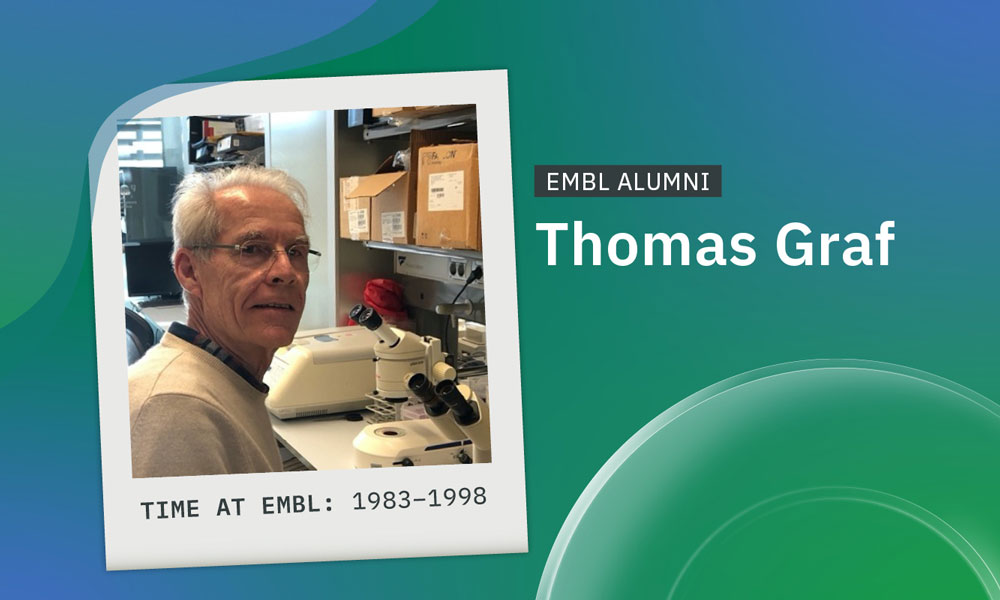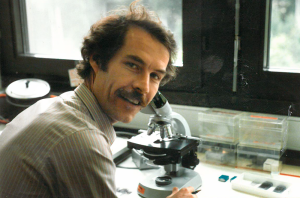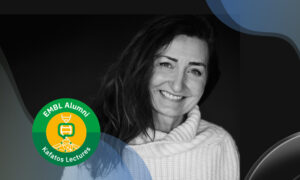
After EMBL: Thomas Graf
EMBL Alumni form a vibrant, engaged community of former staff, fellows, and scientific visitors worldwide. EMBL begins this new periodic web feature to spotlight a wide range of EMBL alumni along with their current whereabouts and thoughts.

Name: Thomas Graf
Time at EMBL: 1983–1998
EMBL role: Programme Coordinator, Differentiation Programme [now known as the Developmental Biology unit] at EMBL Heidelberg
Current title: Senior Group Leader, Centre for Genomic Regulation, Barcelona

Best way to describe your previous and current work and work-related activities: I began at Max Planck Institut für Virusforschung, working on cancer-inducing viruses. Next, at the German Cancer Research Centre (DKFZ), I studied the genetic and molecular mechanisms underlying leukemia. Part of this research included understanding how certain cancer-causing genes affect the differentiation of blood cells. At EMBL, my team developed an in vitro stem cell system that allowed us to change the fate of different blood cell types – a process called transdifferentiation. This led us to discover principles by which transcription factors induce changes in cell fate during the differentiation of blood cells. Since then, my team and I have continued to work on mechanisms that drive cell fate choices. In particular, we have explored how transcription factors alter genome structure and how their modifications can modify the speed of cell fate conversions.
How EMBL prepared you for this career path: I was essentially a virologist/cell biologist when I moved uphill from the German Cancer Center to EMBL in 1983. EMBL converted me into a molecular biologist, after great colleagues taught us state-of-the-art methods that made my lab self-reliant in this area.
Impetus for starting EMBL’s Kinderhaus: Back in 1988 when our first son was born, my former wife, Patricia Kahn, was working as an EMBL Data Library staff scientist, part of a small group that pioneered collecting and organising published DNA sequences. In those days, essentially no daycare was available in Germany for under-6-year-olds.
Consequently, we proposed to EMBL director, Lennart Philipson, that the institute establish its own daycare facility for children aged 3 to 6. While he was open to the idea, he initially said EMBL couldn’t finance such a facility. However, if we could find 6 parents to sign up for a minimum of one year, he would get the kindergarten started. Unfortunately, parents wouldn’t sign up for a nonexistent facility, so the idea was dead until Patricia and I put down the money equivalent to six participants, which kick-started the project with the help of EMBL Head of Human Resources Konrad Mueller. Once the facility opened at what is now the guesthouse in Boxberg, plenty of parents enrolled their children, and EMBL returned our initial investment. A few years later EMBL opened the Kinderkrippe for infants right next to the main building, allowing new mothers to easily breastfeed their babies.
Establishing daycare at EMBL might seem like a no-brainer now that these facilities are such an integral part of the institute’s life. But at the time it was not so straightforward. Here is a quote from Patricia: “Back then the climate around openly discussing parenting and working was very different, and I know from direct (and personal) experience that some EMBL staff felt very inhibited about this. There was still something of an ‘old school’ atmosphere around this subject. But despite this, Lennart did the right thing in opening these facilities.”
Origin story for world-famous Thomas Graf Potatoes: These were born after I came back from a trip to Thailand, the country of my favorite cuisine. Based on my culinary experiences there, I concocted a baste to marinate chicken and potatoes for the barbecue. As the potatoes became particularly popular with our guests, I suggested my simple recipe to Claus Himburg, EMBL’s cook, who then introduced it as ‘Graf potatoes’ into the canteen.

Best memory: I have many: seeing the data from our first successful transdifferentiation experiment (and first reported blood cell reprogramming, fooling around a hose on the terrace of the main building on hot summer days with other unit members, posing in jeans with a bunch of people for a photo used in a conference poster, listening to groundbreaking discoveries at the Oncogenes and Growth Control conference, and watching performances at the famous parties of the Cell Biology Programme.
Best advice: If you are interested in studying mechanisms, develop a tractable system that allows you to generate data easily. Use it to play around and to do crazy experiments; you might come up with some surprising findings. Once you convince yourself that your observations hold, stick to them even if they contradict everything that is published, and don’t shy away from venturing into new areas if that is what it takes. I have felt like an ‘amateur’ for most of my career!


